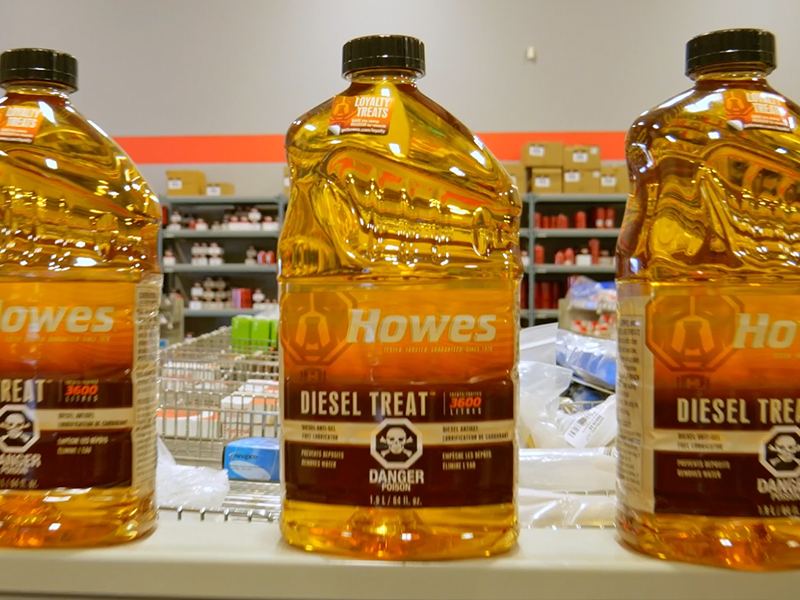Howes to the Rescue: The Low-Down on Anti-Gel Diesel Additives
By: Megan B

If you drive a diesel-run truck, tractor, or any other kind of equipment, it’s probably not lost on you that diesel fuel stands a risk of thickening in colder temperatures than gasoline. As such, you’ve probably had diesel treatment products advertised to you, promising to stop diesel gelling in its tracks. But how do these products work? More importantly, dothey work?
We’ll walk you through diesel gelling, diesel treatments, and what sets Howe’s Diesel Treat apart from others.
Diesel Gelling 101
Diesel runs a higher risk of solidifying in the cold than gasoline, though you might be wondering why. Diesel fuel naturally contains paraffin wax, which is a natural part of the crude oil refining process.
Normally, this paraffin wax assists with adding lubricity and viscosity, but when exposed to colder temperatures, the wax begins to crystallize.
When this “gelling” occurs, the solid paraffin wax particles can clog fuel filters and inhibit the flow of fuel to your engine, which you (of course) want to avoid as best you can.
Fuel suppliers in colder regions deal with this by putting additives into their fuel. There’s a varied array of additives that modify the properties of diesel fuel, but the ones pertaining to this issue are classified as anti-gel additives. These anti-gel additives work by disrupting the crystallization not by breaking down wax crystals, but by coating them so they don’t connect and create larger crystals, clogging filters and lines.
Is it worth it to buy a diesel anti-gel additive?
Given that fuel suppliers already put in their own anti-gel additives, you may be wondering if it’s worth it to buy your own. Suppliers usually offer winterized blends that are suited to the area you are fuelling up in, so if you are staying in one place, usually that’s enough to get the job done. However, if you tend to move between regions with different climates, it may be a good idea to carry a jug of anti-gel additive on you.
If you’re considering getting an anti-gel additive for your equipment, look no further than Howes Diesel Treat. Other anti-gel additives on the market may only do just that, but Howes Diesel Treat has the added benefit of serving as a fuel conditioner, increasing your engine performance and reducing exhaust emissions.
Howes Diesel Treat also has the added benefit of removing water from your system safely by demulsifying it or pushing water molecules out of the fuel to be removed by your water separator, allowing only pure fuel to burn. It does all of this without the use of alcohol. Alcohol, which other products may have, can breakdown seals and gaskets in your system overtime.
There you have it. We hope this article helped to demystify the diesel gelling process and help you decide whether or not anti-gel additives are for you. And in case you do need extra insurance that your diesel engine will keep going even in the cool winter months, stop by one of our online locations or our Express storefront and pick yourself up some Howes’ Diesel Treat today.
Belts Don’t Last Forever
Proactive belt inspections prevent downtime. Choose the right fan belt for seamless, reliable vehicle performance.
Parts for Trucks Inc. announces acquisition of Trailine Trailer Parts in Surrey, BC.
Hey Vancouver (well Surrey technically), meet Parts for Trucks!
Mistakes EVERYONE Makes when Putting Away their Fisher Equipment for the Summer
If you’re tired of dealing with rusted components or damaged belts when you take out your plow after a long summer of storage, this video is for you. Don’t make the same mistakes as everyone else.





